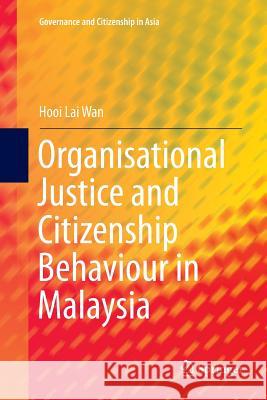Organisational Justice and Citizenship Behaviour in Malaysia » książka
topmenu
Organisational Justice and Citizenship Behaviour in Malaysia
ISBN-13: 9789811090660 / Angielski / Miękka / 2018 / 272 str.
Kategorie:
Kategorie BISAC:
Wydawca:
Springer
Seria wydawnicza:
Język:
Angielski
ISBN-13:
9789811090660
Rok wydania:
2018
Wydanie:
Softcover Repri
Ilość stron:
272
Waga:
0.41 kg
Wymiary:
23.39 x 15.6 x 1.55
Oprawa:
Miękka
Wolumenów:
01











